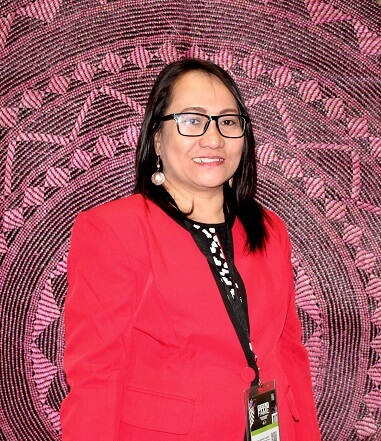
Sometimes, the best way to find your path to success is to tap into your heritage. For Lorielinda Bella Rago-Marte, it was the entrepreneurial heritage that spurred her to help a community of women keep their tribal tradition alive.
When Lorielinda was growing up, her parents owned a sari-sari store, the income from which was used to pay for her tuition fee. She eventually graduated with a business administration degree major in accounting. After college, she naturally progressed through an accounting career at various companies. She also worked for a non-government organization that advocated for the rights of workers, women, and indigenous people.
Lorielinda grew up with entrepreneurial parents and went to business school, but it was a wedding gift that she received that sparked the enterprise that she heads today. An elder gifted her with a banig made by the Bukidnon-Tagoloanen tribe. She and her husband, who himself is a datu (a chief among indigenous people), were curious to learn more about the piece, and what they uncovered was a tribal tradition that was slowly fading away. They discovered that the few weavers who remained were discriminated against and poorly compensated.
Lorielinda would not let these traditional mats with geometric patterns and designs handed from generation to generation of Bukidnon-Tagoloanen Tribe die because of lack of market exposure.
At first, Lorielinda helped this one weaver sell their banig by offering it to friends in Manila. Then she helped another weaver make a sale and another until she and her husband realized what they needed to do: Encourage and invite these weavers into a group business in Casisang, Malaybalay City, Bukidnon.
Eventually, Lorielinda organized the association in May 2012.
They started small. With just P500, they made and sold woven mats, and the earnings from the sale were used to make their next batch of mats. It was a slow, steady growth. There were times when Lorielinda and her husband would fly to Manila to participate in exhibits, with no money in their pockets. They would stay in a friend’s room, sleep on the floor, and only when the mats were sold would they be able to buy their tickets back home.
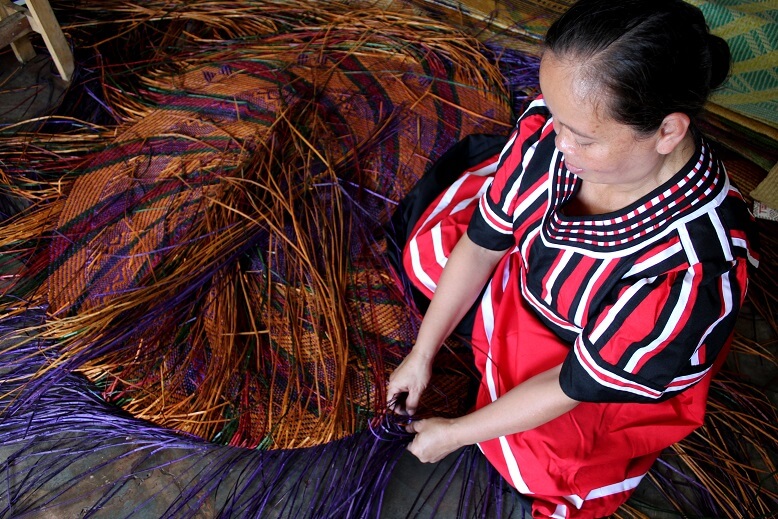
The mats are made out of sodsod grass which is endemic in Bukidnon and can easily be found in rice fields and muddy areas. It was difficult, to say the least, but what was perhaps more challenging was having to assure the women weavers that their creations were beautiful. On top of this, Lorielinda explains that there are gender biases that continue to make things difficult for working women.
To further help the organization, Lorelinda established the TWWA Enterprise as the marketing arm of the association with its business name registered with the Department of Trade and Industry (DTI) as a sole proprietorship in February 2017.
“We are expected to focus on taking care of our husbands, children, aging parents, and other family members…all while running a busy business that also feeds many families,” explains Lorielinda. “Businesswomen also receive flak from their parents and community because they are ‘not taking care of the family,’ even if they are doing the best they can in both worlds.”
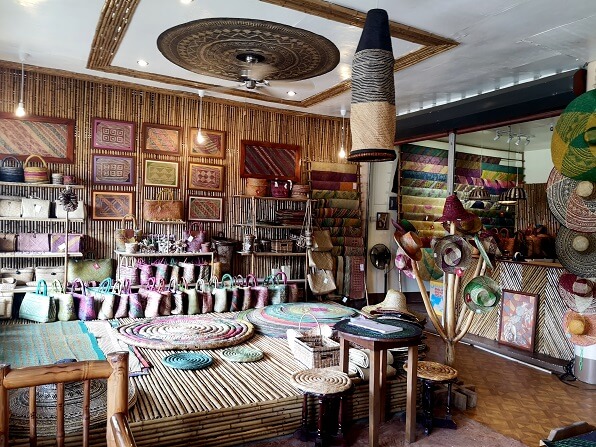
Despite these financial and societal challenges, the Tagolwanen Women Weavers Association, Inc. (TWWA) slowly grew under Lorielinda’s leadership. Through the Department of Trade and Industry’s (DTI) Kapatid Mentor (KMME) program, Lorielinda was able to acquire new skills and information that helped move the business forward. Today, they employ more than 80 women weavers, with their husbands helping out when needed. More importantly, they are now training the next generation of Bukidnon-Tagoloanen youth to keep this weaving tradition alive.
From these weavers would come quality sleeping mats, table runners, bags, and baskets, and wall decors of exquisite designs.
With improved production, TWWA was able to attend various sponsored trade fairs to showcase its products which include Habi Market Fair; Manila Fame Exhibit by the DTI – Center for International Trade Expositions and Missions (CITEM); DTI National Arts and Crafts Fair; and the National Trade Fair; and other island and provincial trade fairs.
TWWA products would cost from P1,500 to P10,000 depending on sizes and design.
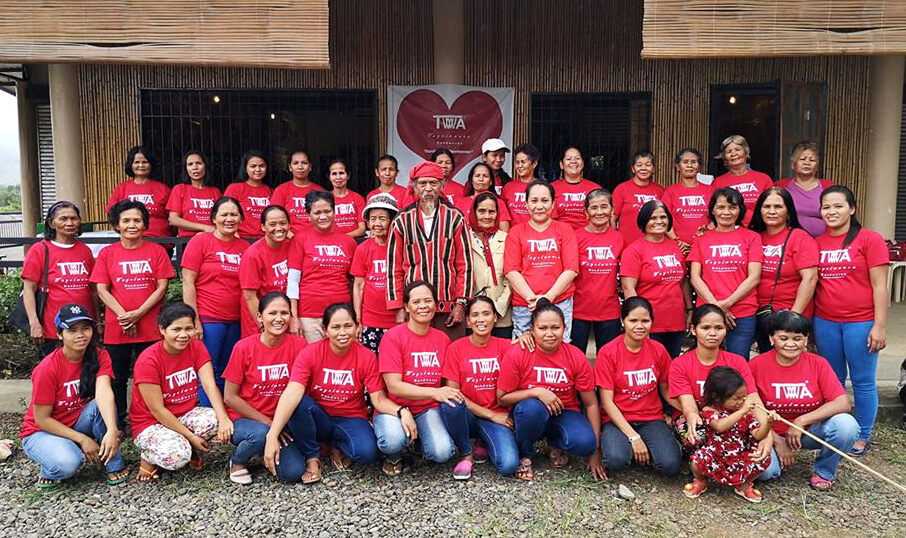
To date, TWWA sells its products online through its website and Facebook page. It has also resellers in Manila, the United States of America, Turkey, and Australia.
After all, it was the heritage that got Lorielinda and the women weavers of TWWA to where they are now. Lorielinda may have learned about business in school, but perhaps it was her parents’ sari-sari store that first instilled the entrepreneurial drive in her. And heritage, the once dying art of Bukidnon-Tagoloanen weaving, that allowed the women of their community to earn income while showcasing their craftsmanship. That’s why it is only fitting that, for a business built of heritage, they are looking into the future, to pass on this legacy of success.♦
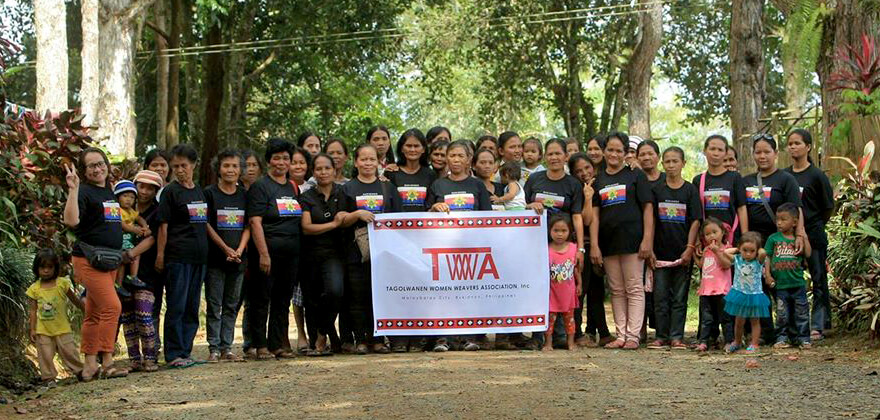
Date of Release: 4 December 2020



